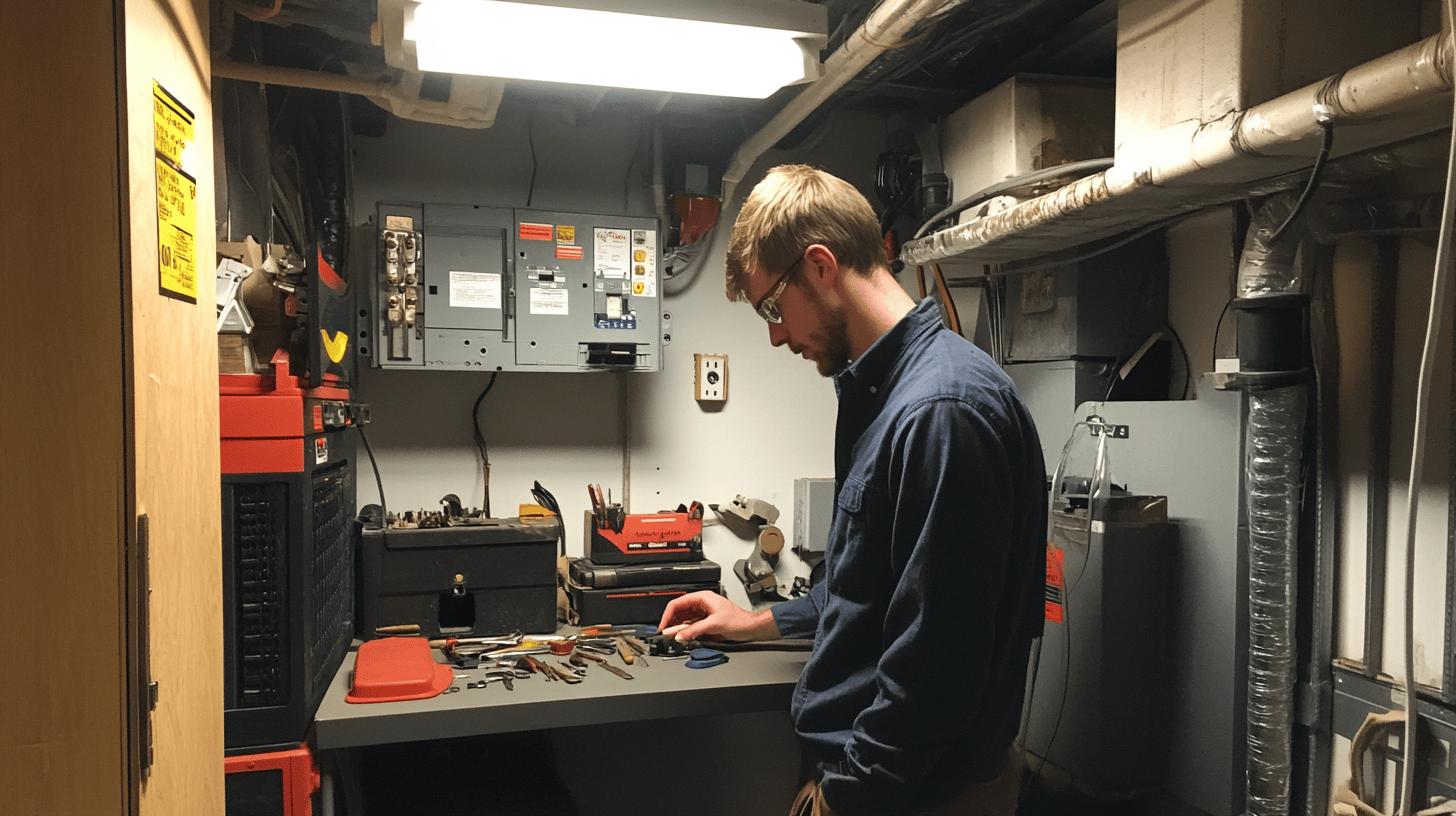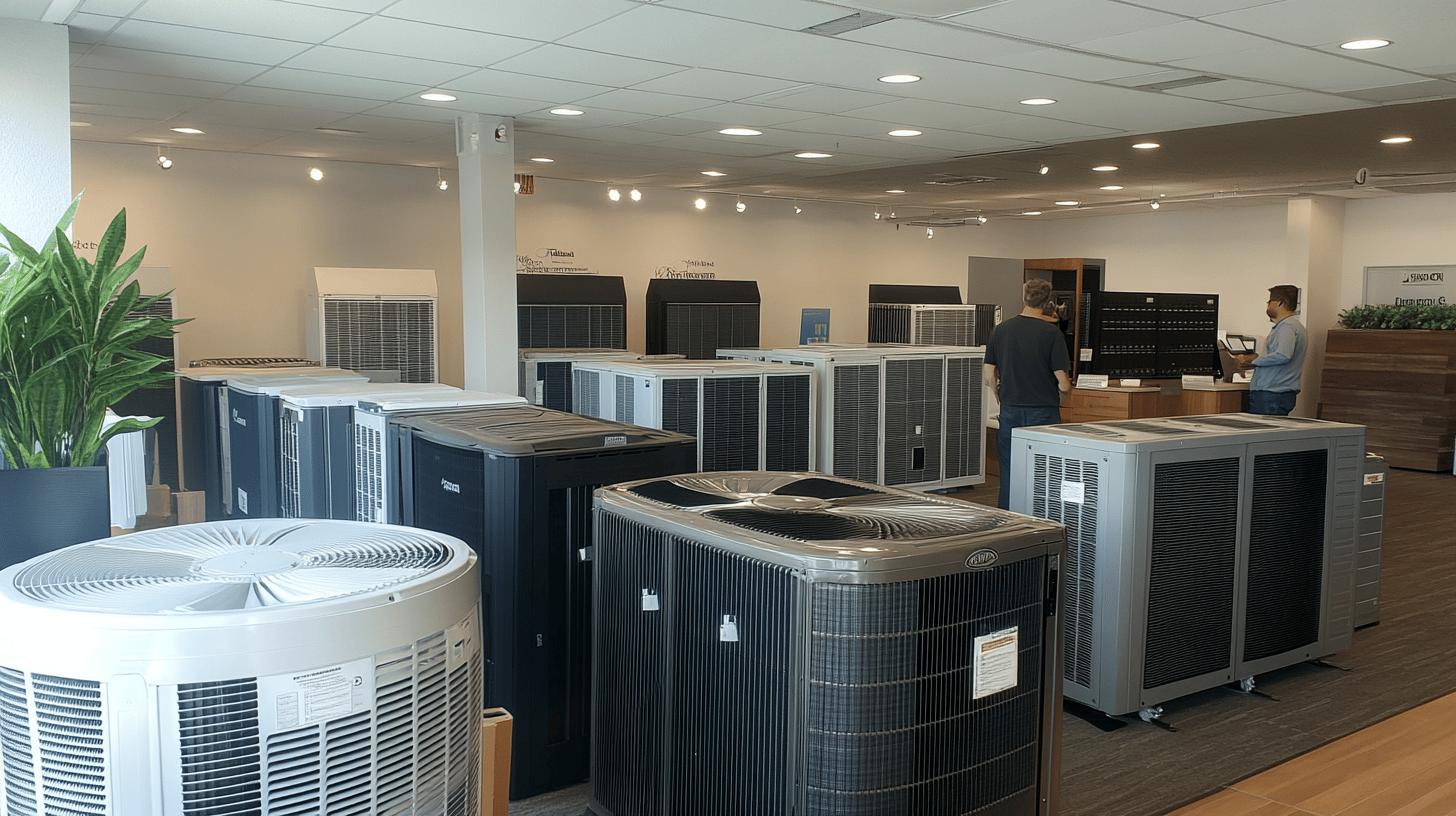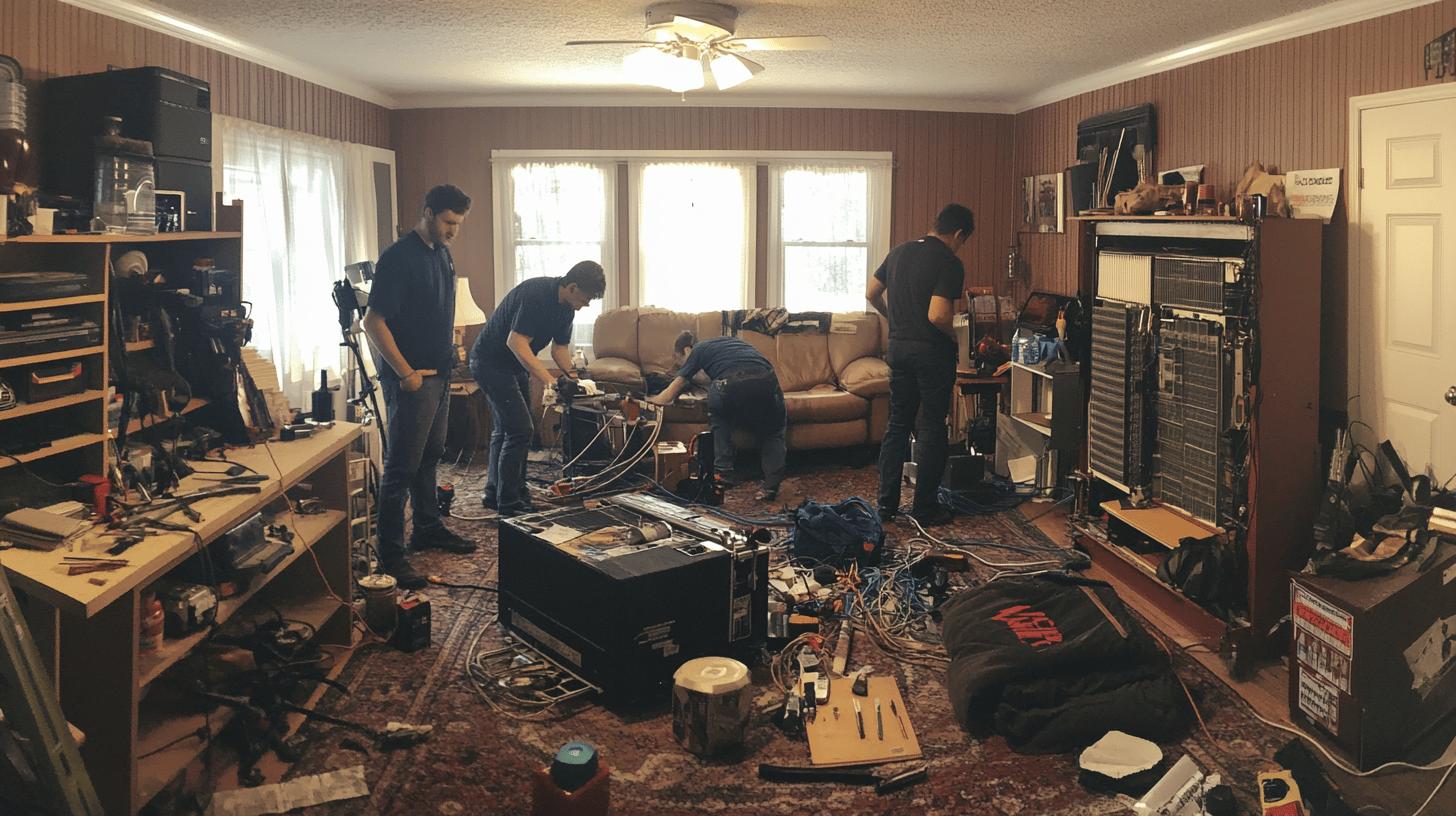TL;DR:
- HVAC installation starts with a site evaluation for unit sizing and system compatibility.
- Key installation phases: site preparation, equipment removal, new system installation, electrical/ventilation setup, and commissioning.
- Costs range from $3,000 to $10,000, influenced by home size, climate, ductwork, and electrical needs.
- Professional installations ensure correct sizing, compliance with local codes, and warranty protection.
- Proper sizing prevents energy inefficiency and system failure; different systems cater to various home sizes and climates.
- Trends include high SEER ratings, smart thermostats, ductless solutions, and variable speed compressors for improved efficiency and comfort.
Ready to make your home more comfortable? Installing an HVAC system isn’t just a purchase—it’s an investment in your home’s climate control. The installation process might seem tricky, but when done right, it’ll keep your home efficient and comfy for years. In this article, we’ll walk you through the key steps of installing an HVAC system and explain why having a pro do it matters. Knowing these basics will help you make smart decisions, saving you time and money while making your home the best place to be.
Understanding the HVAC System Installation Process
Knowing the HVAC installation process is crucial for keeping your home comfortable and efficient. It starts with a site evaluation, where experts check the space, choose the right unit size, and make sure your electrical and ventilation systems can handle the new setup. This planning phase is super important—it helps avoid issues during installation and ensures everything meets local building codes. Proper preparation means your system will run smoothly and work well for your home’s needs.
Here’s a breakdown of the main phases:
-
Site Preparation: Clear the area, inspect for any needed modifications, and ensure easy access for installers.
-
Equipment Removal: Recover refrigerant safely from the old system and remove outdated units, following EPA regulations.
-
New System Installation: Set up new HVAC units like air handlers and condensers, and make any necessary ductwork adjustments.
-
Electrical and Ventilation Setup: Upgrade electrical components and ensure proper ventilation for new system operation.
-
Commissioning: Test the system, check airflow, and adjust the thermostat for optimal performance.
Hiring a professional is a must. They make sure the equipment is the right size and follow EPA rules for refrigerants. Experts handle the tricky parts of installation, ensuring your system works properly and lasts longer. They also know local codes, so your HVAC system will run safely and efficiently, keeping your home comfortable for years.
Cost Considerations for HVAC System Installation

Installing an HVAC system can cost between $3,000 and $10,000, depending on a few factors. For a 1,000 sq ft house, costs may be lower, but the system type and efficiency still play a big role. Knowing the cost range helps you budget and pick a system that fits both your needs and your budget.
Several factors affect installation costs. Home size is a big one—larger homes need more complex systems. Climate matters too, as homes in areas with extreme weather may need stronger systems. Ductwork changes can add to the cost, especially in older homes that need repairs or replacements. Electrical upgrades might also increase the total cost.
Investing in a high-efficiency HVAC system can save you money in the long run. These systems use less energy, leading to lower utility bills. While they cost more upfront, the savings are significant, especially in areas with high heating and cooling demands. Plus, energy-efficient systems reduce your carbon footprint, making them a smart choice.
Getting professional estimates helps you get a clear idea of costs. Pros provide detailed evaluations, covering everything from installation to necessary updates in ductwork and electrical systems. Relying on a professional ensures you get the best value and performance from your HVAC system.
Benefits of Professional HVAC System Installation
Why is it important to have a professional install your HVAC system? Licensed contractors bring the right skills and experience to make sure your system runs efficiently. They ensure the unit is the right size for your home, which is key for performance and energy savings. Proper sizing prevents the system from being overworked or underworked, which can drive up energy costs and cause failures. Professionals also understand local codes, ensuring everything is safe and up to standard. Their expertise helps optimize your system’s performance and extends its lifespan.
Key benefits of professional installation include:
-
Correct Unit Sizing: They determine the optimal size to prevent inefficiencies and extend system life.
-
Compliance with Local Codes: Ensures your system meets regulations, avoiding fines, and ensuring safety.
-
Energy Efficiency: Proper setup maximizes efficiency, reducing utility bills and environmental impact.
-
Quality Workmanship: Licensed contractors provide high-quality installations, reducing future repair needs.
-
Warranty Protection: Professional installation often keeps the manufacturer’s warranty, protecting your investment.
Choosing a licensed and experienced contractor is key. They can handle complex installations and tackle any challenges that come up. Their knowledge of best practices gives you peace of mind, knowing your system will work reliably and efficiently. By hiring certified professionals, you ensure quality and long-term satisfaction.
Choosing the Right HVAC System for Your Needs

Properly sizing your HVAC system is crucial for both performance and energy efficiency. If the system is too big, it will cycle on and off too often, using more energy and causing wear. If it’s too small, it won’t be able to keep the right temperature, leading to higher bills and discomfort. The right-sized system ensures efficient climate control without overworking or wasting energy.
Different systems work best for different home sizes and climates. Ductless mini-split systems are great for smaller homes or single rooms, while central air systems are better for larger homes, providing even cooling. In mild climates, heat pumps offer efficient heating and cooling. Your home size, climate, and budget all affect the best choice for you.
Getting professional advice is key when choosing an HVAC system. Experts perform detailed load calculations to determine the right size and type for your home. They consider factors like insulation, window placement, and climate, and can recommend energy-efficient options that fit your budget and savings goals. Professional guidance helps you make smart choices, ensuring both comfort and a solid investment.
Latest Trends and Innovations in HVAC Systems
Why stay updated on HVAC trends? New advancements can seriously improve your home’s comfort and energy efficiency. Today’s systems do more than just heat and cool—they use technologies that enhance performance and convenience. Staying informed about these innovations helps you make smarter choices to control your home’s climate and lower energy costs.
Recent innovations include:
-
High SEER Ratings: Systems with high Seasonal Energy Efficiency Ratios save more energy.
-
Smart Thermostats: These allow precise temperature control and remote adjustments via smartphone apps.
-
Ductless Solutions: Ideal for homes without ducts, they offer flexible installation and efficiency.
- Variable Speed Compressors: These adjust heating and cooling output for better efficiency and comfort.
How do these benefit homeowners? Smart technology allows for personalized climate control and better energy management, helping lower bills. High SEER ratings and variable-speed compressors improve efficiency, keeping you comfortable while reducing energy use. Ductless systems are great for hard-to-cool or heat areas, making sure every part of your home stays comfortable. Embracing these modern advancements leads to maximum comfort and efficiency in your living space.
Final Words
Navigating the HVAC installation process requires careful steps and expert knowledge. From initial evaluations and preparing the site to removing old equipment and installing the new system, every step is important. Properly assessing costs helps you plan financially, while professional installation ensures efficiency and meets all necessary codes.
Choosing the right system for your home boosts comfort and efficiency. Keeping up with new technological advancements can add value and lead to long-term savings. Investing in professional HVAC installation ensures your system works at its best and gives you peace of mind.
FAQ
Q: How much does it cost to install a complete HVAC system with ductwork?
A: The cost of installing a complete HVAC system with ductwork varies based on home size, climate, and system type but often ranges from $5,000 to $12,000.
Q: Can I install my own HVAC system?
A: Installing your own HVAC system is not recommended due to the complexity, the need for professional equipment, and adherence to safety and legal regulations.
Q: How many hours does it take to install a new HVAC system?
A: Installing a new HVAC system typically takes between one to three days, depending on system complexity and site specifics.
Q: What are the steps to install an HVAC system?
A: The steps to install an HVAC system include site evaluation, recovering refrigerant, removing old equipment, installing new units, and ensuring compliance with local codes.
Q: What are the HVAC installation requirements?
A: HVAC installation requires proper unit sizing, electrical and ventilation systems compatibility, EPA compliance, and adherence to local building codes.
Q: What is the cost to install an HVAC system with ductwork?
A: The cost to install an HVAC system with ductwork includes variables like system efficiency and ductwork modifications, ranging typically from $5,000 to $12,000.
Q: Where can I find HVAC installation services near me?
A: HVAC installation services are widely available, searchable online, or through local directories with considerations for reviews and certifications.
Q: How to choose the right HVAC system for residential needs?
A: Choosing the right HVAC system depends on home size, climate, and efficiency needs. Professional guidance can help make informed decisions based on these factors.
Q: What benefits come with professional HVAC installation?
A: Professional HVAC installation ensures proper unit sizing, energy efficiency, adherence to local codes, and optimal system performance. Certified contractors provide quality assurance.

